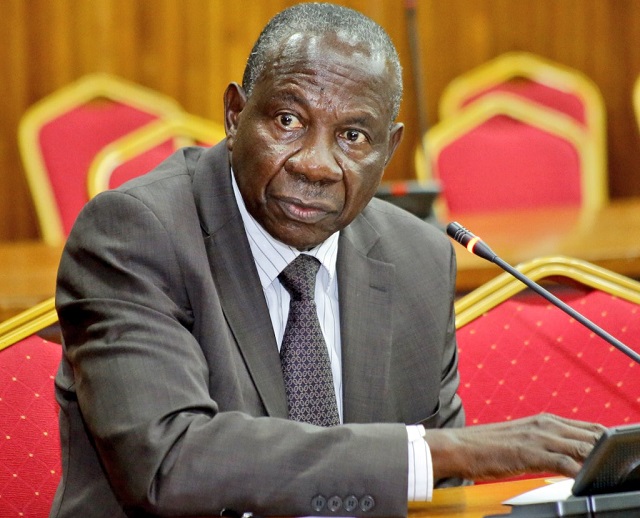
Kampala, Uganda | THE INDEPENDENT | There is a need for a comprehensive evaluation of numerous initiatives the government has been working on for years under the banner of Human Capital Development, the Finance, Planning, and Economic Development Minister Matia Kasaija has said.
According to Kasaija, despite years of constant investment worth billion of Shillings into the growth of human capital, there are no results to show.
He said this during a high-level consultative meeting on investing in human capital development for growth in Uganda held at Kololo ceremonial grounds, Wednesday.
His remarks came after experts from the World Bank advised the government to direct more investment in human capital development, more so at the foundation levels, as one of the means of taking advantage of Uganda’s demographic dividend.
In recent years, Uganda has been putting money into initiatives geared towards among other things, increasing youth employment, and employer satisfaction with the Technical and Vocational Education and Training-TVET, reducing neonatal, infant, under 5, and maternal mortality rates, and increasing primary and secondary school survival and transition rates.
Even in the current financial year alone, the human capital development program took the lion’s share of over 7.2 trillion Shillings accounting for 26.9 percent of the total budget. To Kasaija, although the government remains committed to injecting more money into this budget program, after years of investment without results, there might be something that needs to be studied so that a solution or way forward is tabled to ensure that any penny invested in the same in future is not wasted.
Janet Kataha Museveni, the Minister of Education and Sports, who also doubles as the chairperson of the human capital development program, to an extent agreed with Kasaija, recommending that the review should assess the coverage, quality, and equity of human capital interventions.
She, however, reminded her fellow minister that certain initiatives lack success due to limited funding. For instance, she cited the fact that while the government has constructed and equipped technical schools, the majority of them lack instructors making it impossible for students who attend these institutions to gain the necessary skills.
According to Anne Bakilana, the World Bank’s leader for human capital development practice, Uganda may greatly benefit from allocating more funds to human capacity development with a strong emphasis on children and youth because it has one of the youngest and fastest-growing populations in the world.
Bakilana, however, spells doom for Uganda’s destiny if the aforementioned course of action is not followed. She says that considering that over 41 percent of the country’s youth are already not in education, employment, or training, they may not be able to live up to their full potential due to unemployment and subpar living conditions.
Keith E. Hansen, the new World Bank Country Director for Uganda, also notes that in the past year many, including the World Bank Group, had ignored human capital development giving priority to things like infrastructural development. To him, this was a big oversight given the fact human capital development has a high return on investment.
Similar to Bakilana, Hansen suggests that more funds need to be directed to initiatives that will support children at their early stage and improve social protection investments to lessen vulnerability and encourage equitable growth.
*****
URN
 The Independent Uganda: You get the Truth we Pay the Price
The Independent Uganda: You get the Truth we Pay the Price


